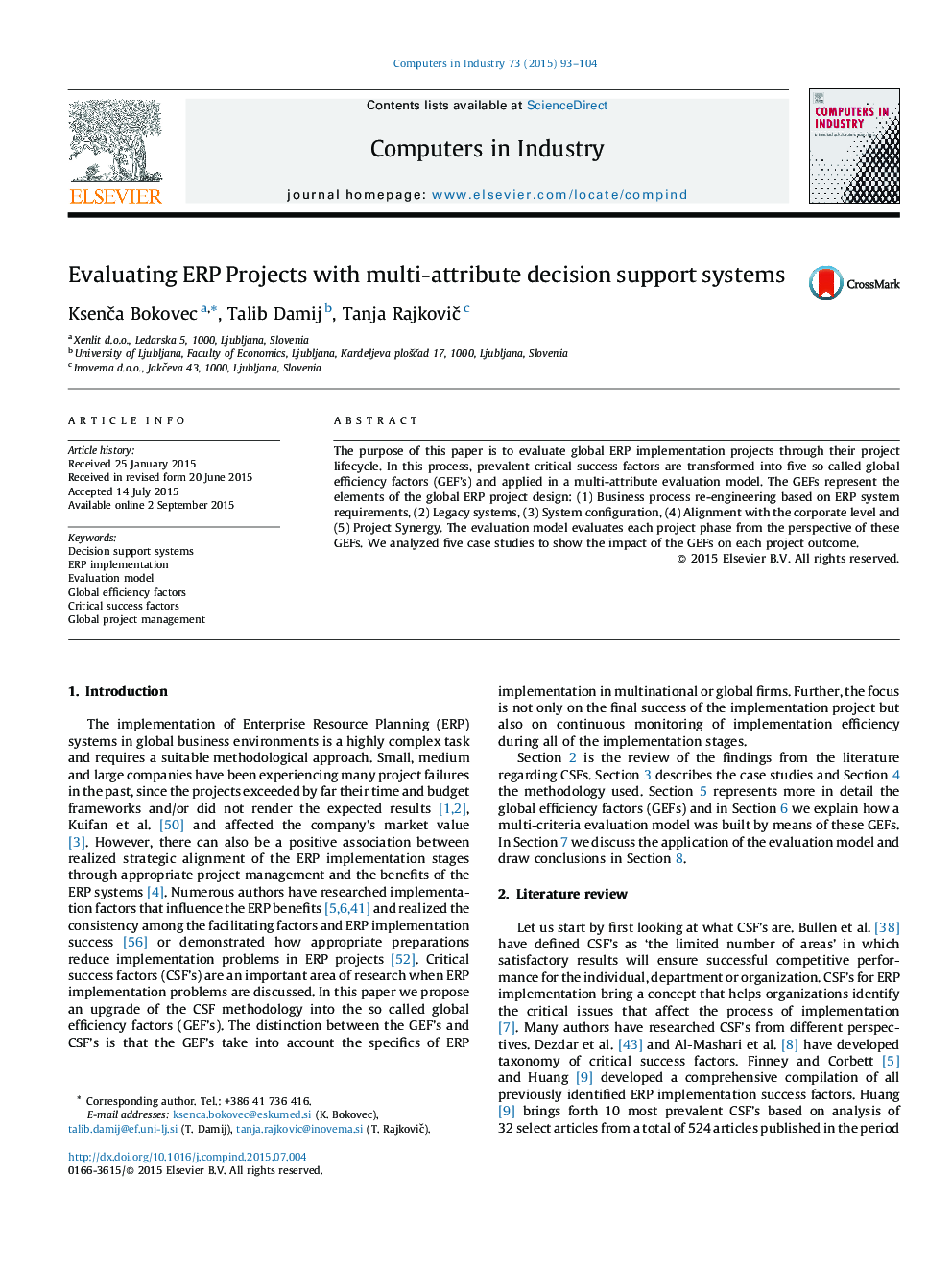| Article ID | Journal | Published Year | Pages | File Type |
|---|---|---|---|---|
| 508975 | Computers in Industry | 2015 | 12 Pages |
•The research was done in five case studies, where the global ERP implementation projects were carried out.•Critical success factors (CFSs) in ERP implementations were reviewed in the literature.•Based on the CSFs and the five case studies’ research, the global efficiency factors (GEFs) were derived from each project phase.•The result is the list of five global efficiency factors: (1) Business process re-engineering based on ERP system requirements, (2) Legacy systems, (3) System configuration, (4) Alignment with the corporate level and (5) Project Synergy.•These five GEFs were broken down into their elements and a decision tree was built.•By means of DEXi computer program (Decision Expert) a model was built which showed how the ERP implementation projects were carried out from the perspective of the five GEFs.•The results were evaluated to show, which were the areas that should be improved in a certain project and what was the impact of the GEFs on the project success (time, budget, complexity).
The purpose of this paper is to evaluate global ERP implementation projects through their project lifecycle. In this process, prevalent critical success factors are transformed into five so called global efficiency factors (GEF's) and applied in a multi-attribute evaluation model. The GEFs represent the elements of the global ERP project design: (1) Business process re-engineering based on ERP system requirements, (2) Legacy systems, (3) System configuration, (4) Alignment with the corporate level and (5) Project Synergy. The evaluation model evaluates each project phase from the perspective of these GEFs. We analyzed five case studies to show the impact of the GEFs on each project outcome.
